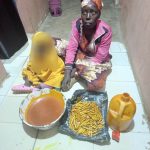At least 1,467 Nigerians has asked for refugee protection from January 2023 to March 2024, and between these dates, the Immigration and Refugee Board of Canada has provided asylum asylum to them.
The Refugee Board of Canada’s Refugee Protection Division stated that as of Q1 2024, the total number of accepted asylum petitions filed by Nigerians has increased to 11,370.
If an application or claimant satisfies the Division’s verification that they either fulfil the UN definition of a Convention refugee, “which has been incorporated into Canadian law,” or that they are a person in need of protection, the Board will grant refugee protection in Canada.
According to the 1951 UN Convention on the Status of Refugees, a person can only be seen as a refugee if they have a legitimate fear of being punished because to their race, nationality, religion, political philosophy, or membership in a specific social group.
These social groups can include people with HIV/AIDS, women, sexual orientation or gender identity, and others.
However, in order to be given refuge in Canada, an individual must present evidence that they could be tortured, face life risk or face unjustified harsh treatment or punishment if they were to return to their country of origin.
These protection claims are usually made by immigrants to an immigration officer or notifying the Border Services Agency at any port of entry upon arrival in Canada.
“The officer decides whether the claim is eligible to be referred to the IRB. If the claim is eligible, it is sent (‘referred’) to the RPD to start the claim for refugee protection process,” an application guideline by the Refugee Board reads.
However, the IRB denied 589 applications from Nigerians between January 2023 and March 2024, and this has increased the total number of denials since January 2013 to more over 12,600.
The report revealed that in 2012, 2013, 2014, and 2015, respectively, 20, 308, 394, and 389 Nigerians received asylum permits.
The approval was given to 389, 764, 755, and 1,733 Nigerians in 2016, 2017, 2018, and 2019, respectively. Protection was given to 1,534, 2,302, and 1,315 people in 2020, 2021, and 2022, respectively. In 2023 and Q1 of 2024, 1086 and 381 Nigerians, respectively, were awarded protection.




